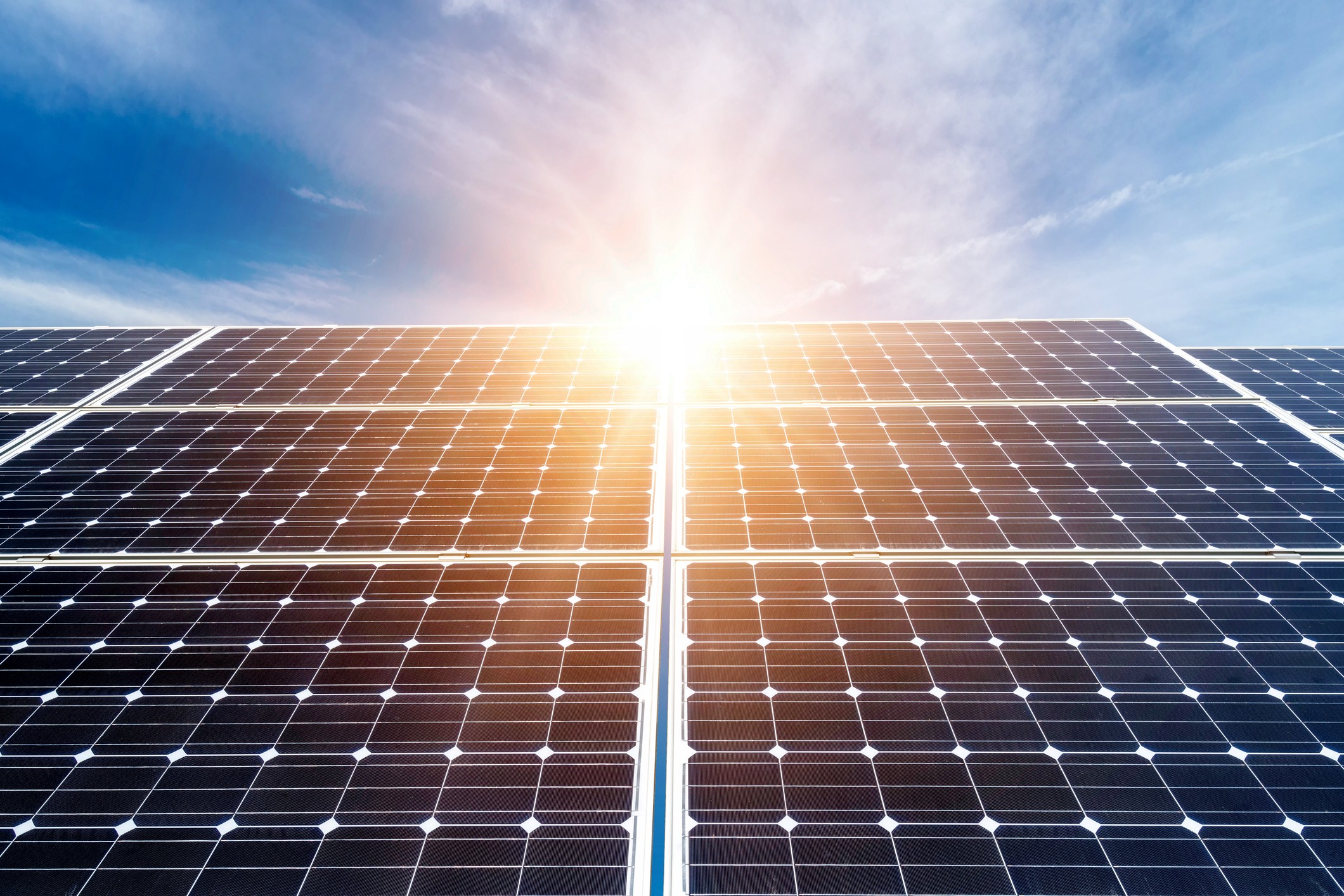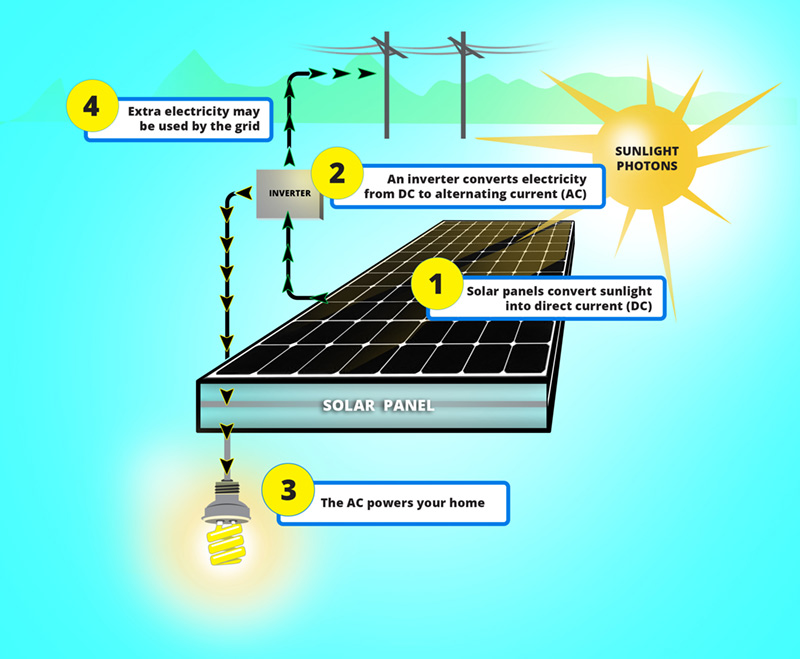
The first thing you need to know is that solar panels rely on light from the sun, not heat so here is a quick rundown of the flow:

Our sun is a natural nuclear reactor. It releases tiny packets of energy called photons, which travel the 93 million miles from the sun to Earth in about 8.5 minutes. Each solar panel is made of photovoltaic, or PV, cells. PV cells convert photons (sunlight) into voltage and current (electricity). Multiple cells make up a solar panel, and multiple panels (modules) can be wired together to form a solar array. The more panels you can deploy, the more energy you can expect to generate.
To get the electricity from those solar panels to power a home, a couple of steps are needed after the PV cells do their job. First, the electrical current needs to match the type of electricity your home uses, then that current needs to get to your home’s wiring system.
There are two kinds of electrical current - Direct Current (DC) and Alternating Current (AC). Solar panels generate DC, but our homes and appliances are made to use AC. An inverter is a device that uses electronic circuitry to convert DC to AC. Some solar panel setups have a single inverter (often called a “string” inverter) for the entire system and some have a microinverter attached behind each panel. Once the electrical current goes through the inverter, you have a current that can be used to power your home!
The electric current is wired from the inverter into your home’s existing wiring. It works just like your electricity does now - you don’t have to change a thing.
Now that you know how powerful the sun is, you may be wondering what happens if your solar panels produce more electricity than you need. To understand what happens next, you need to know something about the grid system.
Rooftop solar panels utilise the grid system, both to offload extra electricity and to give your home backup electricity as needed.
Being on the grid allows you to use exactly as much electricity as you need, when you need it, and send any excess back to the grid. Solar panels generate electricity when the Sun is up, but since most people use electricity at night, it’s important to have access to power from the grid any time.
In most residential set-ups, excess power created by your solar panels is fed back into the grid, meaning your utility may credit you the next time your power bill arrives
If you would rather have some more energy independence, however, you may be able to install a battery.
Batteries are available for some rooftop solar setups. Including a battery allows you to store the extra energy you generate when the Sun is shining for use later (like at night, on cloudy days, or in the event of a power outage). To read more about battery storage systems see our previous BLOG.
And there you have it. Now you know how solar panels work, you will have a greater appreciation for those shiny panels you see on rooftops.
Don't forget that it always pays to choose premium quality solar panels over cheap and inferior alternatives. We’ve covered this in a previous BLOG, but basically, premium panels will have cells that contain purer silicon (the higher the silicon grade, the longer the solar cell will last and the better it will perform in converting the sun’s energy to electricity ), less deviation between the cells (eliminating mismatch) and higher efficiency and longevity. This all combines to give you a smoother solar energy experience and one which is more likely to meet and exceed your savings expectations.
For me information, send us a message and one of our solar technicians will be in contact.